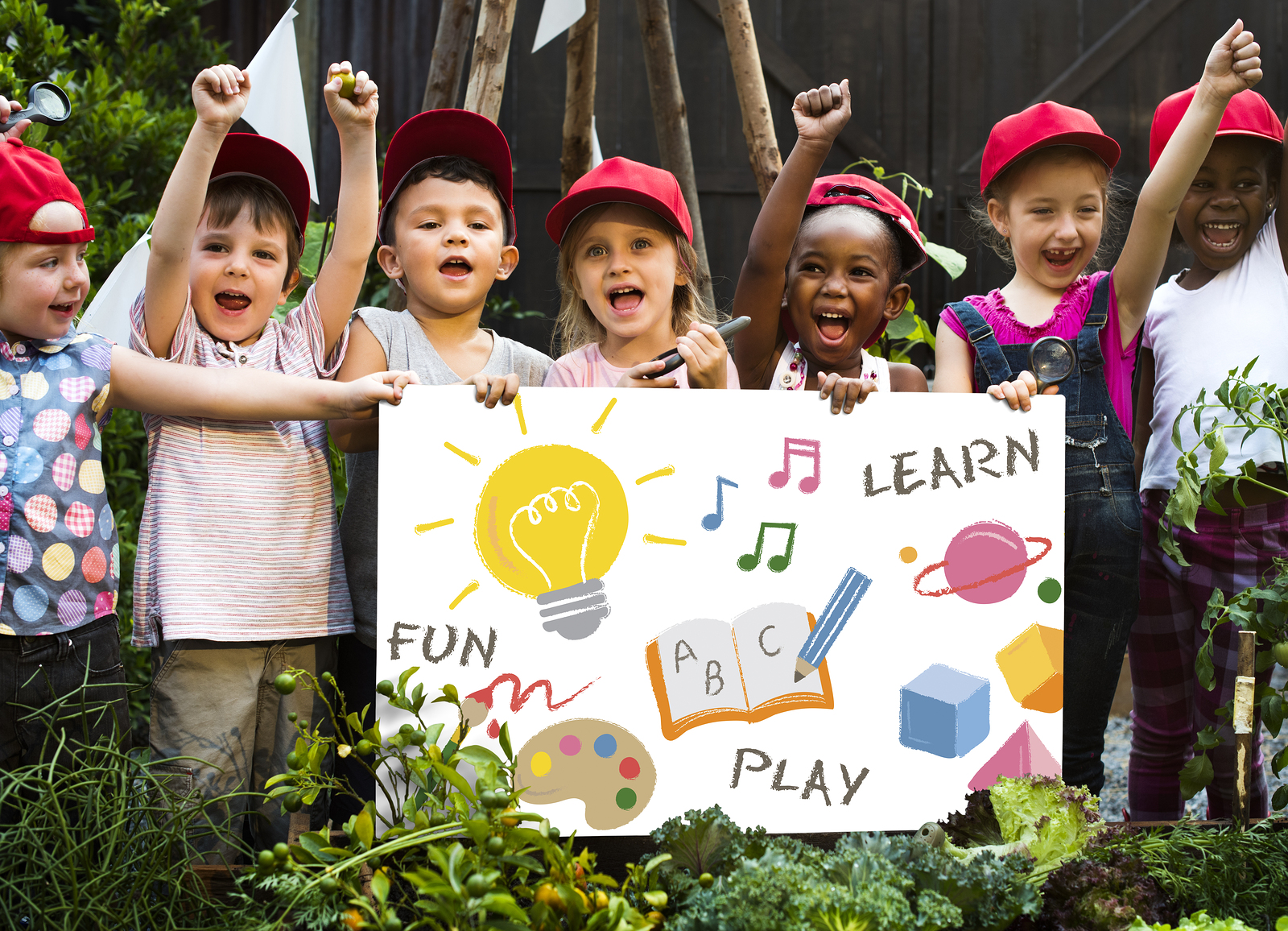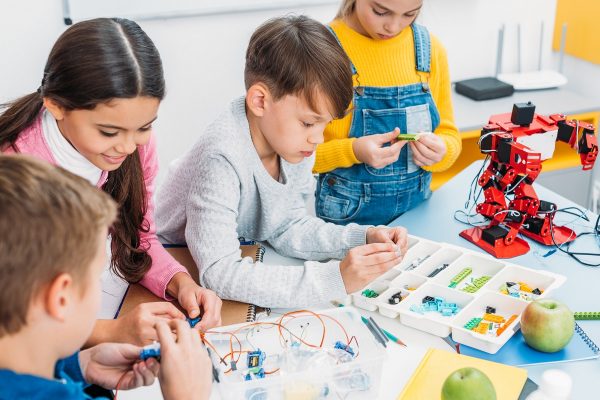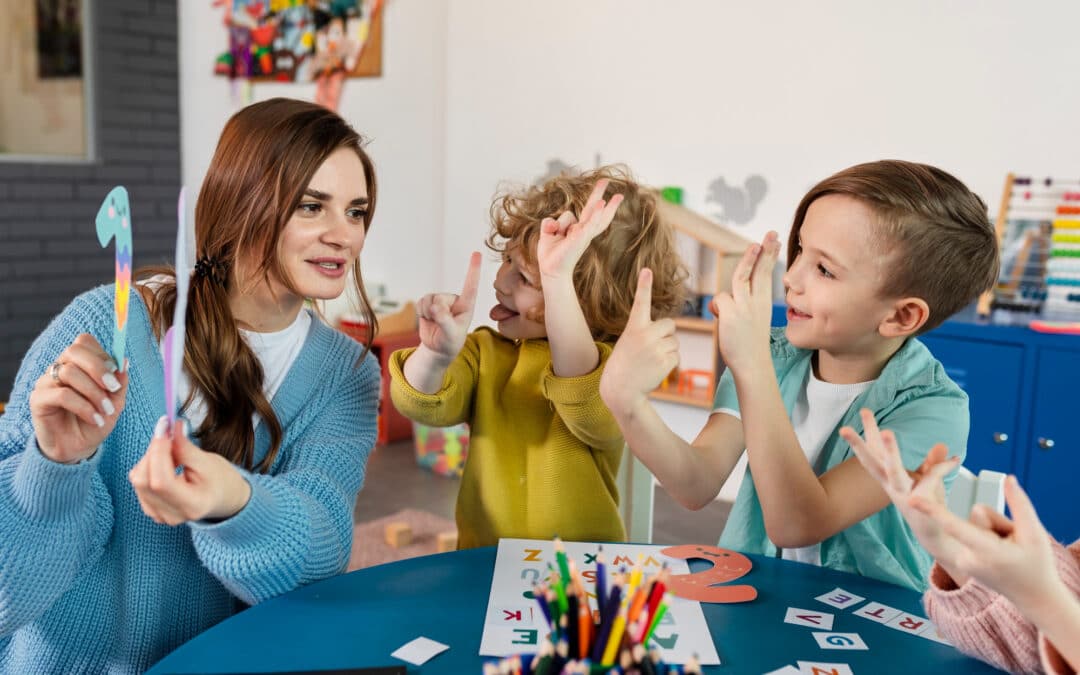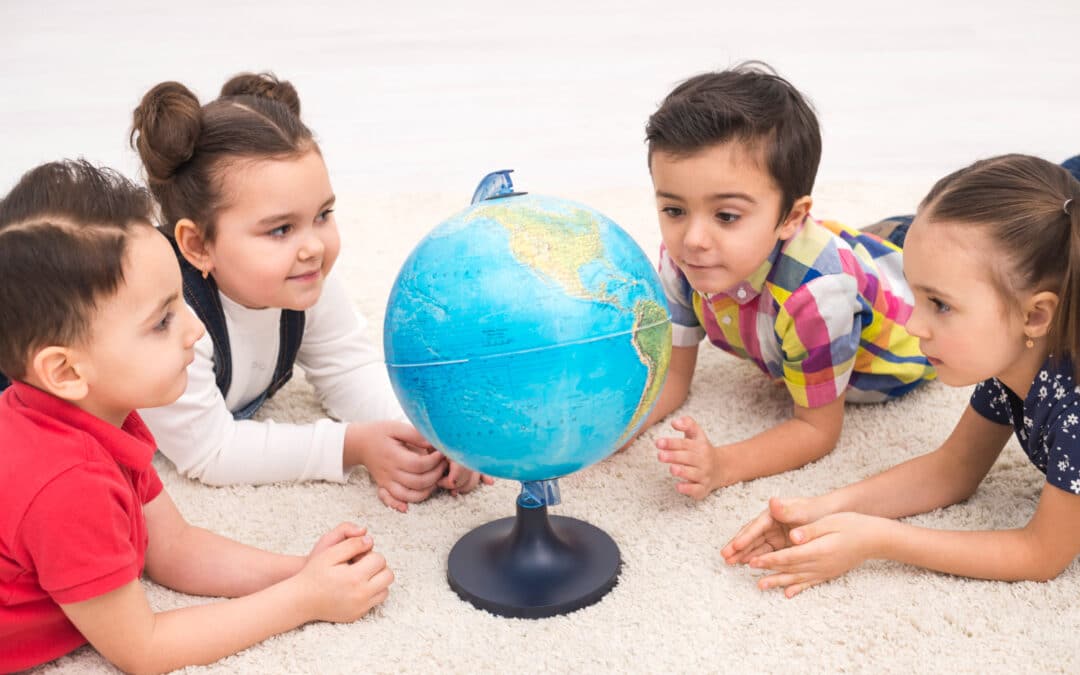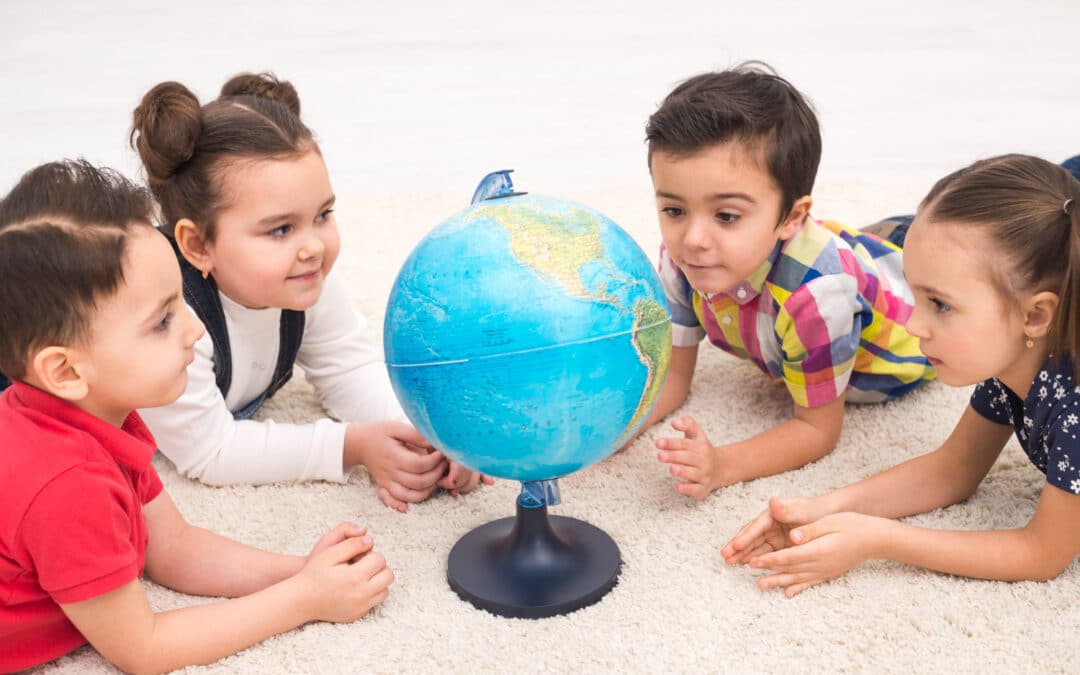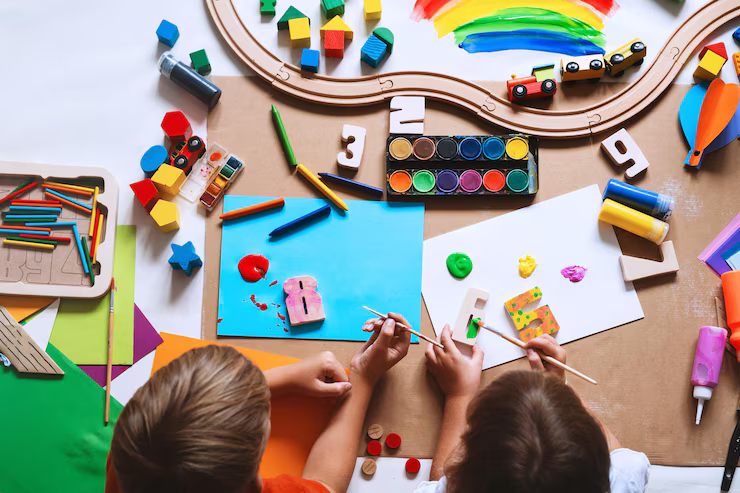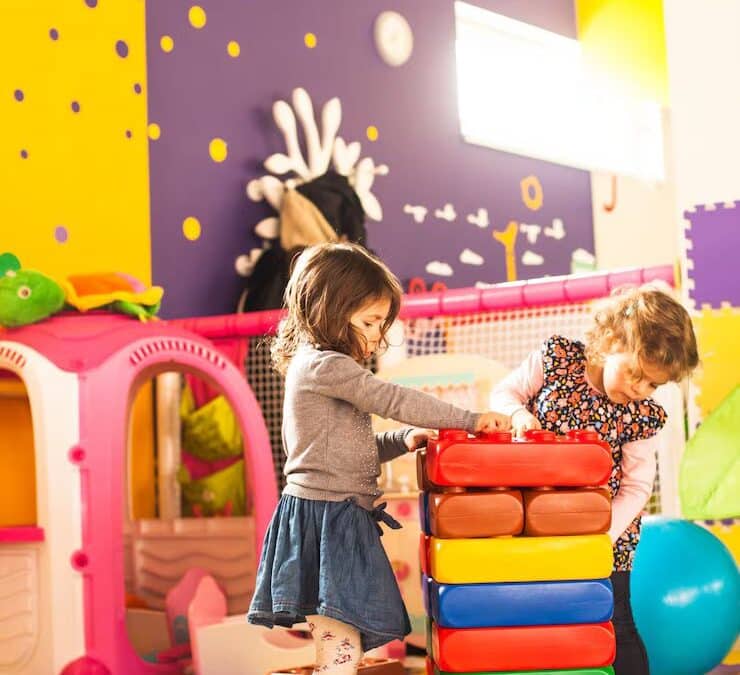Summer camps are a great way for young children to get ready for kindergarten. These programs help bridge the gap between their early childhood experiences and formal education, laying the groundwork for future academic success.
A well-designed summer camp provides children with their first experience in a structured learning environment while still allowing them to have fun and be playful. Through interactive activities, your child will be introduced to important educational concepts, making the transition to kindergarten easier and less daunting.
Key benefits of summer camps for kindergarten preparation include:
- Social Development: Children learn to interact with peers, share resources, and work in groups
- Academic Readiness: Introduction to basic literacy, numeracy, and problem-solving skills
- Independence Building: Practice in following routines and managing personal belongings
- Emotional Growth: Development of self-confidence and resilience in new situations
Research shows children who attend summer camps before kindergarten often display:
- Enhanced communication skills
- Stronger problem-solving abilities
- Better adaptation to classroom routines
- Increased confidence in social situations
Summer camps combine educational activities with fun experiences, creating an atmosphere where learning comes naturally and is enjoyable. Your child will not only acquire important skills but also build friendships and create lasting memories that extend beyond the summer season.
The Role of Summer Camps in Academic Preparation
Summer camps play a vital role in preparing kindergarteners for school. They provide structured learning environments that help children develop important skills. These programs bridge the gap between preschool and kindergarten by offering specific activities and a carefully designed curriculum.
Language Arts and Literacy Development
At summer camps, children have plenty of chances to improve their reading and writing abilities. Here are some ways they do this:
Letter Recognition Activities
- Alphabet scavenger hunts
- Letter-sound matching games
- Interactive alphabet walls
- Name recognition exercises
Sight Word Introduction
- Word of the day activities
- Memory card games
- Reading circles
- Visual word displays
In addition, language immersion programs at summer camps help children expand their vocabulary naturally through various activities such as storytelling sessions, puppet shows, role-playing activities, and show-and-tell presentations.
- The multi-language approach used in these camps has unique benefits for literacy development:
- Enhanced phonological awareness
- Improved listening skills
- Stronger memory retention
- Advanced problem-solving abilities
To ensure children are ready to read, summer camps incorporate both structured and play-based activities into their curriculum:
Structured Learning
- Guided reading sessions
- Phonics workshops
- Writing practice
- Letter formation exercises
Play-Based Learning
- Rhyming games
- Word building with blocks
- Story creation stations
- Dramatic play areas
Integration of Literacy into Daily Routines
Summer camps understand the importance of making literacy a part of everyday life. That’s why they incorporate various activities into their daily routines:
- Morning message boards where teachers write messages for children to read
- Weather charts that require kids to read and interpret weather-related information
- Calendar activities that involve reading dates and days of the week aloud
- Label reading where children learn to read labels on objects around them
- Environmental print recognition where kids identify familiar signs and logos in their surroundings
These literacy-rich environments support children’s natural curiosity about written language while building confidence in their emerging reading abilities. The combination of structured instruction and playful exploration creates an ideal setting for developing strong language foundations.
Individualized Attention and Differentiated Instruction
Every child learns at their own pace, which is why summer camps prioritize individualized attention and differentiated instruction. Teachers observe each child’s progress in key areas such as print awareness, letter-sound relationships, vocabulary development, oral language skills, and writing readiness.
Based on these observations, teachers tailor their instruction to meet each child’s specific needs. For example:
- If a child struggles with letter-sound relationships, the teacher may provide additional phonics workshops.
- If a child shows interest in storytelling but has difficulty with writing, the teacher may encourage story dictation as a way to express ideas.
- If a child excels in oral language skills but struggles with print awareness, the teacher may incorporate more label reading activities.
In addition to individualized attention from teachers, summer camps also promote small group activities. This allows for targeted skill development while maintaining an engaging atmosphere free from pressure.
Varied Approaches to Literacy Development
At summer camps, children practice their emerging literacy skills through various means:
Creative Expression
- Journal writing where kids reflect on their experiences or create fictional stories.
- Story dictation where children verbally share stories that an adult writes down.
- Art projects with labels where kids create artwork and write descriptive labels for them.
- Song lyrics exploration where children analyze song lyrics for meaning or create their own songs.
Interactive Learning
- Digital literacy tools such as educational websites or online games that promote reading and writing skills.
- Educational apps that provide interactive learning experiences on tablets or smartphones.
- Smart board activities where teachers use interactive whiteboards to engage students in literacy lessons.
- Audio book stations where children listen to books being read aloud while following along with the text.
These varied approaches to literacy development create multiple pathways for learning, accommodating different learning styles and preferences while building strong academic foundations for kindergarten success.
How Summer Camps Help Children Learn Basic Math Skills
Summer camps provide a fun and interactive setting where kids can learn important math concepts through play. At camps like Amici Trilingual Montessori, children get to explore numbers and shapes through hands-on activities that make learning math enjoyable and unforgettable.
Key Math Concepts Kids Learn at Summer Camps
During their time at summer camp, children are introduced to various fundamental math concepts, including:
- Recognizing numbers from 1 to 10
- Developing basic counting skills
- Identifying different shapes
- Understanding simple patterns
- Comparing sizes of objects
- Sorting and classifying items
These concepts serve as building blocks for their future mathematical understanding.
Fun Math Activities at Summer Camps
To reinforce these mathematical concepts, summer camps organize a variety of engaging activities such as:
- Building challenges using blocks or other construction materials
- Creating patterns with colorful objects like beads or buttons
- Going on scavenger hunts where children have to find specific numbers of items
- Playing sorting games with natural materials like leaves or stones
- Singing counting songs and reciting rhymes that involve numbers
- Playing simple board games that require counting or number recognition
These hands-on experiences not only make learning math enjoyable but also help children grasp the connection between numbers and quantities in a concrete way.
The Impact of Play-Based Learning on Future Academic Success
Research has shown that when children are exposed to mathematical concepts through play at an early age, it positively influences their academic performance later on. Those who develop basic numeracy skills before entering kindergarten tend to exhibit stronger problem-solving abilities and greater confidence in mathematics throughout their educational journey.
The Benefits of Multilingualism in Mathematical Learning
At summer camps, children have the opportunity to learn math in multiple languages. This adds another layer to their mathematical education as they not only learn how to count but also expand their numerical vocabulary and develop an appreciation for different cultures.
By integrating language learning with math instruction, summer camps create an environment that fosters both mathematical and linguistic development simultaneously.
Everyday Math Experiences That Reinforce Learning
In addition to structured activities at camp, everyday situations also provide valuable opportunities for children to practice their math skills:
- Counting snacks during meal times helps reinforce one-to-one correspondence
- Measuring ingredients in cooking projects introduces concepts of volume and capacity
- Tracking daily weather patterns encourages data collection and analysis
- Creating art with geometric shapes promotes understanding of spatial relationships
- Using numbers in movement games enhances gross motor skills while reinforcing counting abilities
- Organizing materials by quantity develops skills related to classification and sorting
These real-life applications of mathematics further solidify children’s understanding and comfort with numbers, laying a strong foundation for more advanced mathematical concepts they will encounter in kindergarten.
Social Readiness Through Summer Camps
Summer camps create a unique environment where children develop essential social skills that prepare them for kindergarten success. These structured yet relaxed settings allow young learners to build meaningful connections with peers and educators.
Natural Social Interaction Opportunities
- Structured group activities that encourage teamwork
- Free play sessions for organic friendship formation
- Mixed-age group interactions that foster leadership skills
- Collaborative projects that teach sharing and turn-taking
Children who attend summer camps before kindergarten often show increased comfort in social situations. The camp environment provides a safe space to practice:
- Expressing emotions appropriately
- Resolving conflicts peacefully
- Understanding social cues
- Developing empathy for others
Building Early Friendships
Making friends before the school year begins gives children a significant advantage. Summer camps offer:
- Small group settings that facilitate close bonds
- Shared experiences that create lasting connections
- Regular interaction with the same peer group
- Opportunities to practice friendship-building skills
These early friendships help reduce first-day anxiety and create a support system that carries into kindergarten.
The Role of Camp Counselors
Camp counselors serve as mentors and guides, offering:
- Emotional support during challenging moments
- Positive behavior modeling
- Individual attention when needed
- Consistent encouragement and praise
Their presence helps children develop trust in adult figures outside their family unit, preparing them for future teacher relationships.
Building Relationships with Future Teachers
Many summer camps, like Amici Trilingual Montessori, employ teachers who work in the kindergarten program. This arrangement provides:
- Early exposure to teaching styles
- Familiarity with classroom expectations
- Trust-building opportunities
- Smooth transitions into formal education
Children who know their teachers before school starts display:
- Reduced separation anxiety
- Increased classroom participation
- Greater confidence in seeking help
- Enhanced learning readiness
The teacher-student bonds formed during summer camp create a foundation of trust that enhances the learning experience. Teachers gain valuable insights into each child’s personality, learning style, and needs, allowing them to provide more effective support when the school year begins.
These relationships extend beyond academic benefits, fostering:
- A sense of belonging in the school community
- Increased motivation to participate
- Better emotional regulation
- Stronger communication skills
Summer camps at Amici emphasize creating these meaningful connections through daily activities, ensuring children feel supported and ready for their kindergarten journey.
Fostering Independence and Confidence
Summer camps create a unique environment where kindergarteners develop crucial life skills through hands-on experiences. These structured yet flexible settings encourage young learners to step out of their comfort zones and embrace new challenges.
Choice-Based Activities
- Self-selected learning stations
- Personalized project completion timelines
- Independent material management
- Free play periods with minimal adult intervention
Children gain ownership of their learning journey by choosing activities that interest them. A kindergartener might select between painting at the art station or building with blocks, developing decision-making skills through these simple daily choices.
Self-Directed Learning Opportunities
Summer camps incorporate dedicated periods for self-directed activities where children:
- Pack and organize their own belongings
- Set up their workspace
- Clean up after activities
- Choose playmates and form groups
- Manage their snack time
These experiences build confidence as children master new skills at their own pace. A child who successfully ties their shoes or completes a puzzle without help experiences immediate positive reinforcement.
Outdoor Challenges and Growth
The camp environment provides natural opportunities for independence through:
- Nature exploration walks
- Simple obstacle courses
- Garden maintenance tasks
- Weather-appropriate clothing decisions
- Basic survival skills (finding shade, staying hydrated)
Encouraging Empathy and Decision-Making Skills
Group activities foster emotional intelligence and social awareness:
Team Building Activities
- Group art projects
- Partner reading sessions
- Collaborative problem-solving games
- Shared responsibility for classroom pets
- Group performances and presentations
Decision-Making Opportunities
- Conflict resolution scenarios
- Resource sharing situations
- Activity planning input
- Group rule creation
- Project leadership roles
Children learn to recognize others’ emotions and adjust their behavior accordingly. A kindergartener might notice a friend feeling left out and invite them to join their activity, developing crucial empathy skills.
Supportive Environment for Growth
Camp counselors create safe spaces for:
- Risk-taking in new activities
- Expressing emotions
- Making mistakes
- Asking questions
- Trying different solutions
This supportive atmosphere helps children develop resilience and problem-solving abilities. When faced with challenges, they learn to persevere rather than give up immediately.
The skills gained through these experiences transfer directly to kindergarten readiness. A child who has practiced independence at summer camp shows greater confidence in classroom routines, social interactions, and academic challenges.
Thematic Learning Units at Summer Camps
Summer camps transform traditional learning through engaging weekly thematic units. Each week brings a new adventure as children explore different subjects through interconnected activities and lessons.
Weekly Themes Include:
- World Cultures and Geography
- Art and Creative Expression
- Science and Nature Discovery
- Music and Movement
- Mathematical Concepts
These thematic units create natural learning opportunities where children absorb knowledge through hands-on experiences. A week focused on “Ocean Life” might include counting sea creatures for math practice, creating underwater art projects, and learning vocabulary related to marine animals.
The interdisciplinary approach helps children see connections between different subjects. When studying “Space Exploration,” kindergarteners practice:
- Writing constellation names
- Counting stars and planets
- Learning about gravity through movement activities
- Creating galaxy-inspired artwork
Technology Integration in Summer Camps
Modern summer camps recognize the importance of digital literacy in today’s educational landscape. Programs like Scratch Jr. introduce coding concepts through playful, age-appropriate activities.
Key Technology Components:
- Visual programming basics
- Problem-solving through coding challenges
- Interactive storytelling projects
- Digital creativity exercises
Young learners benefit from early exposure to coding concepts:
- Development of logical thinking skills
- Enhancement of sequential understanding
- Building confidence with technology
- Preparation for future digital learning
The technology curriculum balances screen time with hands-on activities. Children might create digital stories about their weekly theme, combining creative writing with basic programming skills.
Digital Literacy Benefits
In our tech-driven world, digital literacy provides kindergarteners with essential skills:
Academic Advantages:
- Enhanced problem-solving abilities
- Improved spatial awareness
- Strengthened mathematical thinking
- Better pattern recognition
Social Benefits:
- Collaborative project work
- Peer learning opportunities
- Communication skill development
- Digital citizenship understanding
The camp’s technology program creates a foundation for future learning. Children learn to:
- Navigate basic computer interfaces
- Follow multi-step digital instructions
- Create simple programs
- Work with educational software
These experiences prepare kindergarteners for the increasing integration of technology in elementary school classrooms. The skills they develop extend beyond basic computer literacy to include creative thinking and digital problem-solving abilities.
Summer camps blend traditional learning with modern technology education. This combination helps children develop a well-rounded skill set that serves them throughout their educational journey. The thematic approach ensures learning remains engaging and relevant, while technology integration prepares them for future academic challenges.
Outdoor Activities and Personal Growth
Summer camps create dynamic environments where kindergarteners develop essential life skills through outdoor adventures and creative expression. These experiences shape young minds and build strong foundations for their upcoming school year.
Adventure-Based Learning
The outdoor activities at summer camps spark curiosity and physical development in young learners. Children engage in:
- Nature exploration walks
- Garden planting projects
- Water play activities
- Simple obstacle courses
- Group games and sports
These physical activities strengthen gross motor skills while teaching children to:
- Navigate different terrains
- Understand basic safety rules
- Work with peers in team settings
- Build physical coordination
- Practice spatial awareness
Physical activities at camp help kindergarteners develop healthy habits and body awareness. Regular movement throughout the day improves:
- Balance and coordination
- Core strength
- Hand-eye coordination
- Physical stamina
- Sleep patterns
Creative Expression Through Arts
Art activities at summer camps unlock children’s creative potential and support cognitive development. Young campers participate in:
- Painting sessions
- Clay modeling
- Music and movement
- Dramatic play
- Crafting projects
The combination of outdoor adventures and artistic activities creates a rich learning environment. Children develop physical capabilities while exploring their creative talents. These experiences build confidence, independence, and essential skills that prepare them for kindergarten success.
Young campers learn to take appropriate risks in a safe environment, whether trying new physical activities or experimenting with art materials. This balanced approach to personal growth supports their development as confident, capable learners ready to tackle new challenges in the upcoming school year.
Conclusion
Summer camps create a powerful foundation for kindergarten success through their comprehensive approach to child development. These programs deliver tangible academic benefits while nurturing essential life skills that shape a child’s educational journey.
The impact of summer camp experiences extends far beyond the immediate preparation for kindergarten:
- Social-Emotional Growth: Children develop resilience, adaptability, and emotional intelligence through daily interactions
- Academic Confidence: Early exposure to structured learning environments builds a positive association with education
- Cultural Awareness: Multilingual programs and diverse activities foster global perspectives from an early age
- Technical Literacy: Introduction to age-appropriate technology and coding establishes digital competency
- Creative Expression: Art, music, and movement activities stimulate cognitive development and self-expression
Parents investing in summer camp programs provide their children with valuable tools for success. These early experiences shape:
- Problem-solving abilities
- Communication skills
- Independence
- Leadership qualities
- Cultural sensitivity
The skills and confidence gained during summer camp create lasting positive effects on children’s academic performance and social interactions. This investment in early childhood development yields returns throughout their educational journey and beyond.
Summer camps serve as a bridge between home and formal education, creating an environment where children can thrive and develop the foundational skills needed for kindergarten success.

